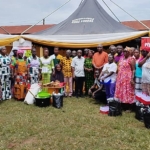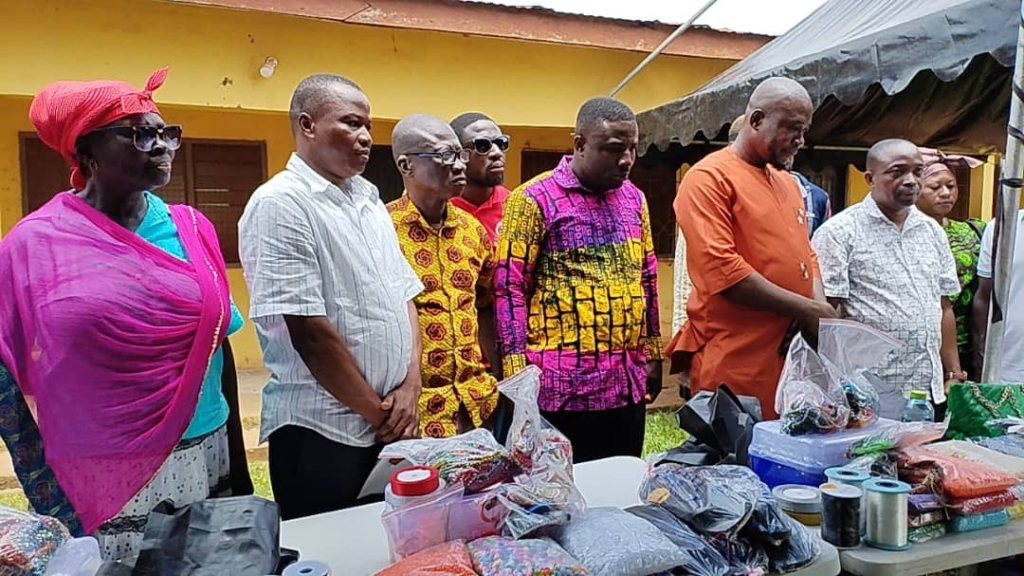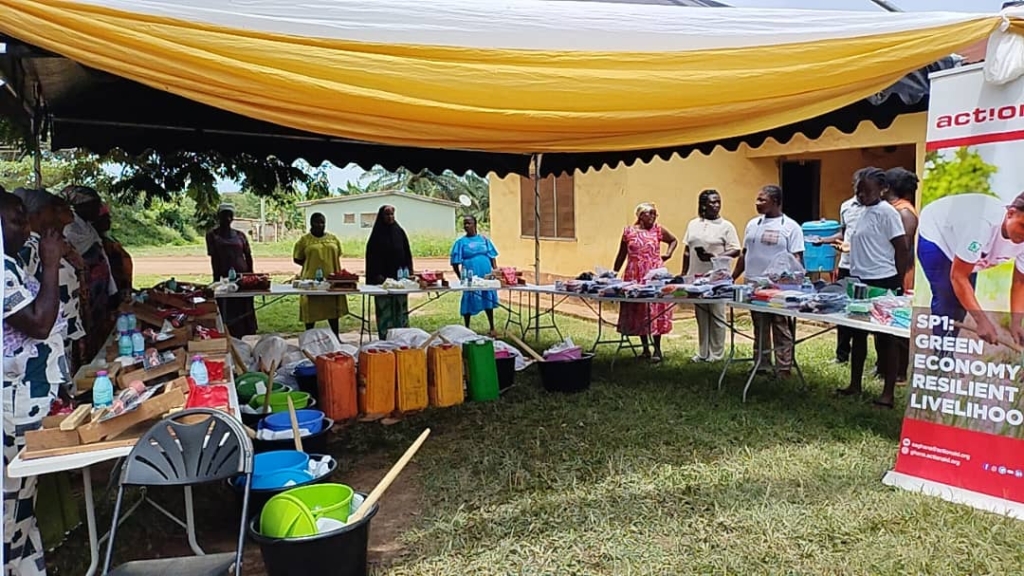
Fifteen women from four underserved communities in the Asutifi North and South districts of the Ahafo Region have been equipped with practical skills, startup tools, and materials support worth over GH₵50,000 to launch small-scale enterprises in beadwork and soap-making.
The initiative, spearheaded by ActionAid-Ghana in partnership with the Coalition for Maternal Health and Citizens Empowerment (CMCE), aims to strengthen women’s economic resilience and reduce poverty in the Asutifi North and South Districts – two areas where limited employment opportunities continue to challenge rural livelihoods.
At a presentation ceremony in Kenyasi, the beneficiaries, drawn from Bogyampa, Donkorkrom, Ohiatua, and Apenamadi, received the essential business inputs after completing intensive hands-on training sessions.
The programme forms part of ActionAid’s broader commitment to advance women’s rights and economic inclusion across Ghana.

“Our focus is not just on training, but on building sustainable income streams for women,” said Kwame Afram Denkyira, ActionAid-Ghana’s Bono and Ahafo Regional Manager.
“When women are empowered economically, entire families and communities benefit. This is at the heart of our mission.”
Mahama Salam, Executive Director of CMCE, noted that the beneficiaries were also trained in bookkeeping, financial management, effective customer service, personal and workplace hygiene, and product quality sustainability.

He urged the participants to apply the skills, knowledge, and startup resources received to improve their livelihoods and create ripple effects that positively impact their families and communities.
“Empowerment only becomes meaningful when knowledge translates into action,” Mr. Salam emphasized.
“We expect these women to become role models for others, demonstrating that with the right support, rural women can drive local economic transformation.”
The District Chief Executive for Asutifi North, Dauda Hafiz, commended the initiative, noting that empowering women at the community level remains central to the government’s development agenda.
He pledged continued collaboration to strengthen women-led enterprises and local value chains.
Traditional leaders in attendance hailed the effort as a catalyst for long-term community development. They described it as a practical response to the persistent cycle of poverty that has hindered many rural families from achieving self-reliance.
For Matilda Asare, one of the beneficiaries, the project represents a lifeline.
“We now have both the knowledge and the tools to start our own businesses,” she said with visible joy.
“This opportunity will not only change our lives but also help us support our children’s education and contribute to our local economy.”
Experts say economic empowerment programs like this serve as a model for sustainable poverty reduction – especially in regions where women often bear the brunt of economic marginalization.
By investing in skills, tools, and entrepreneurship, ActionAid-Ghana and CMCE are demonstrating how inclusive development can translate into tangible transformation at the grassroots level.
ActionAid-Ghana’s women’s empowerment initiatives are part of its broader national agenda to promote gender equality, economic justice, and sustainable livelihoods.
Since 1990, the organization has supported thousands of women and youth across Ghana through education, advocacy, and enterprise development projects.